News
July 2023
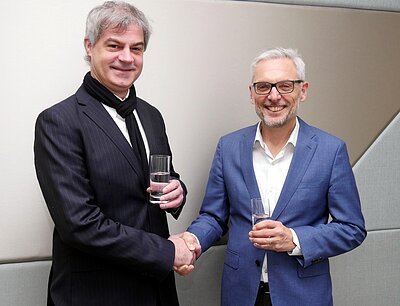
Drinking Water Protection: Matthias Maier and Wolfgang Deinlein to lead IAWR for another three Years
Reduction of Micropollutants and Agricultural Transition remain in Focus
Karlsruhe, 13 July 2023. On 11 July 2023, Prof. Dr. Matthias Maier was re-elected in Amsterdam as President of the International Association of Waterworks in the Rhine Basin (IAWR) and will continue to head the IAWR for another three years. IAWR Managing Director, Wolfgang Deinlein, was also confirmed in office. The office will therefore remain at Stadtwerke Karlsruhe until the end of 2026. "We are committed to maintaining or restoring the natural quality of groundwater and surface water for the benefit of drinking water customers. Pollution must be avoided or reduced at its source and must not get into the drinking water so that our children and grandchildren can still enjoy pure and natural drinking water and waterworks do not become costly and energy-intensive repair services for neglected water protection," said Maier after his re-election.
Matthias Maier and Wolfgang Deinlein have been leading the IAWR, in which water suppliers from six countries are members, as an experienced tandem since 2019. The IAWR has a strong voice teaming up in the so-called ERM coalition with like-minded drinking water associations in the river basins of the Danube, Elbe, Meuse and Scheldt with a total of 188 million people. The IAWR has provided essential impulses for legislation on the protection of drinking water resources at EU and national level as well as in the Rhine basin. Besides the establishment of the target in the Rhine basin to reduce micropollutants by 30% by 2040, the IAWR has given substantial input into the discussion on an agricultural transition towards organic farming without synthetic pesticides in water catchments. This is reflected in the corresponding processes for shaping EU legislation. "Sustainable agriculture without artificial pesticides and nitrate surpluses is also a crucial building block in protection against droughts and floods, because organically managed soils absorb more than twice the precipitation water which is then available in times of drought," Deinlein adds.
April 2023
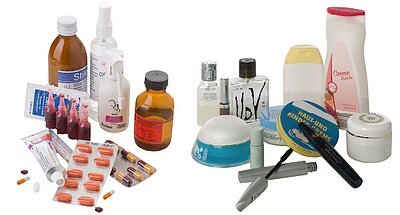
Upcoming Pharma legislation must connect milestones of EPR in UWWTD with new CLP amendment
Joint press release by ERM Coalition and ZeroPM
In the recast proposal of the EU Urban Wastewater Treatment Directive (UWWTD), an Extended Producer Responsibility (EPR) was proposed for medicinal products for human use and cosmetic products. The EPR system obligates producers (including importers) to cover monitoring and quaternary treatment costs.
On the 29th of March 2023, the European Commission postponed its proposal for the revision of the EU general pharmaceuticals legislation for the second time. At the same time, the introduction of hazard classes for persistent, mobile and toxic (PMT) and very persistent and very mobile (vPvM) substances into the Classification, Labelling and Packaging (CLP) Regulation, will go ahead.
EPR incentivises polluters to avoid environmental damage. European Union legislation now needs coherence between the UWWTD, pharmaceutical legislation and the amended CLP Regulation: In extended Environmental Risk Assessments (ERAs) as part of the authorisation, PMT/vPvM criteria according to the CLP Regulation have to be included.
ZeroPM co-coordinator Sarah Hale explains: Persistent and mobile substances do not break down over appreciable time scales and can travel long distances with water.
Coherence in legislation is strongly needed to tackle the increasing trend of organofluorine-containing pharmaceuticals. ZeroPM co-coordinator Hans Peter Arp adds "We call for a comprehensive alternatives assessment for these pharmaceuticals that are PFAS, and also a phase-out if their use is not critical for the functioning of society or where there is an acceptable, safer alternative available."
 Complete ERM coalition and ZeroPM press release 13.04.2023 (237,0 KB)
Complete ERM coalition and ZeroPM press release 13.04.2023 (237,0 KB)
December 2022
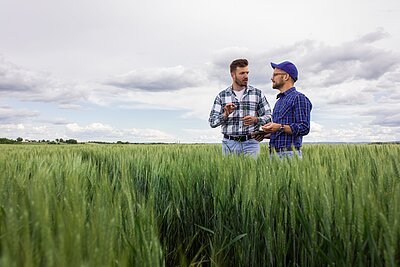
A sustainable supply of clean drinking water requires a ban on chemically synthetized pesticides in water protection areas now
Karlsruhe, 08.12.2022: In a News article in July, the German Environment Agency (UBA) pointed out that, even with “Codes of Good Practice”, conventional agriculture now leads to contamination of drinking water resources by degradation products (metabolites) of chemically synthetized pesticides/plant protection products. Pesticide authorisation procedures no longer offer sufficient protection. The main reason behind this are successful lawsuits by producers against pesticide use restrictions in Germany, which despite being based on the latest scientific findings, had to be cancelled by court order. Comparable lawsuits are also possible in the other EU member states.
"UBA draws attention to new loopholes in the authorisation procedure for pesticides. The EU Commission's proposal of 22 June 2022 for a Regulation (SUR, Sustainable Use of plant protection products Regulation), which provides for a ban on pesticides in water protection areas, is therefore all the more important. This is the only way to maintain the high quality of drinking water. However, natural pesticides that are permitted in organic farming should continue to be allowed, because a sustainable drinking water supply needs a switch to organic farming in water protection areas," says Prof. Dr Matthias Maier, President of the IAWR.
The presentation on 26 October 2022 at the SUR "Sensitive Areas" event at the European Parliament can be found here.
December 2022
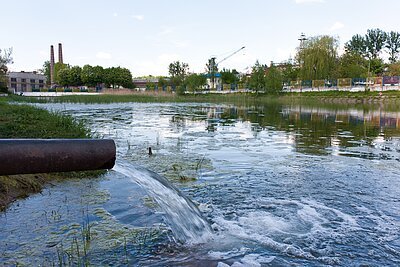
Industrial discharges must be effectively reduced by revision of IED
Karlsruhe, 08.12.2022: Currently, the EU Parliament and Council are dealing with the EU Commission's proposal for a revision of the Industrial Emissions Directive (IED), and amendments will be tabled in the Parliament this week. This proposal provides for stricter limit values for industrial discharges and a broader application of "best available techniques" (BAT). It is accompanied by a transfer of the previous Pollutant Release/Transfer Register (PRTR) into a more comprehensive Industrial Emissions Portal (IEP). In the view of the ERM Coalition, a disadvantage of the IED proposal consists in its limitation to large installations, so that about 80 % of emissions/discharges would be outside its scope. In its IED position, the ERM Coalition therefore calls for the scope to be extended to include all "Substances of Very High Concern" (SVHC) under REACH, in particular all per fluorinated and polyfluorinated alkyl substances (PFAS). In general, only substances for which a permit has been granted should be allowed in discharges. In addition, the impact of a discharge on drinking water abstraction points downstream should be assessed. In general, the disclosure of substances in the IEP should not be circumvented by declaring them as business secrets. And: A functioning legislation cannot do without controls and effective sanctions in case of violations.
IAWR-President Prof. Dr. Matthias Maier: "Drinking water suppliers take their task of supplying safe drinking water seriously. At the same time, the removal of pollutants must not be blamed solely on the waterworks, but must primarily aim at prevention at the source of pollution. Therefore, if highly complex technical measures are required in waterworks due to PFAS, this must be accompanied by a ban on substances and the closing of the corresponding approval gaps (e.g. PMT/vPvM substances) in order to prevent continuation of pollution. Protection against environmental pollution must not be limited to drinking water, while pollution via other intake pathways continues unabated as a result of lengthy prohibition procedures with uncertain outcomes. This is not in line with European primary law (Art. 191 TFEU). We very much hope that the regulatory competence is at all strong enough to ban hazardous chemicals like PFAS."
 Complete ERM Coalition press release 08.12.2022 (361,9 KB) (343,6 KB)
Complete ERM Coalition press release 08.12.2022 (361,9 KB) (343,6 KB)
June 2022
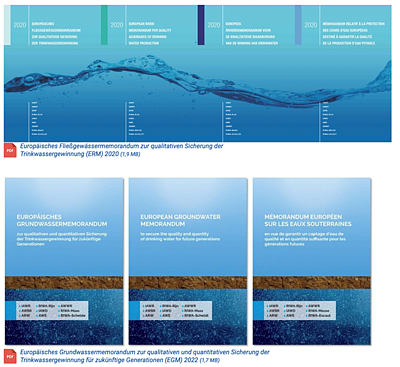
ERM Coalition highlights urgent requirements of drinking water supply towards Cabinet of Sinkevičius, EU Commissioner for Environment
Drinking water suppliers in the major European river basins of the Danube, Elbe, Meuse, Scheldt, Ruhr and Rhine (ERM Coalition) together with EurEau Secretary General Oliver Loebel highlighted the need for much stricter regulation of chemical substances in the European legislative framework to protect the drinking water supply.
During a presentation of the European River Memorandum (ERM) and European Groundwater Memorandum (EGM) to Simonas Šatūnas, the Head of Cabinet of EU Commissioner Sinkevičius, the parties emphasized that the current releases of PMT chemicals – substances that are persistent (P), mobile (M) and/or toxic (T) (new hazard categories PMT and vPvM) – into the environment threaten the supply of clean drinking water for future generations.
Moreover, a number of further requirements for drinking water protection was shown.
Head of Cabinet Satunas welcomed the presentation and promised to report back to Commissioner Sinkevičius. Also, he pointed out to the parties the importance of sharing these issues with other Commissioners involved in shaping current legislation. All parties shared common understanding on the importance of the recently started EU research project ZeroPM with a strong focus on prevention of PM/T substance emissions.
External link: https://zeropm.eu/
March 2022
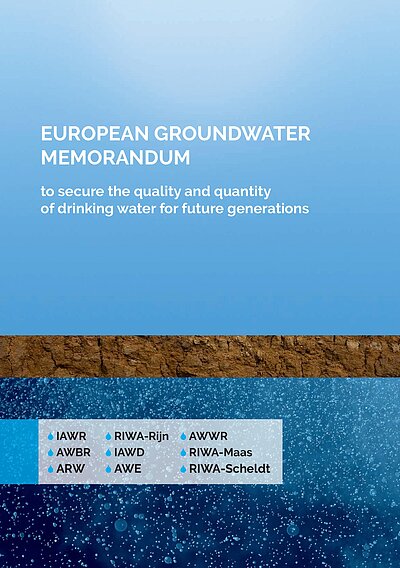
European Groundwater Memorandum adopted on World Water Day
European Coalition of Drinking Water Suppliers shows how the Drinking Water Supply from our valuable Groundwater Resources can be secured
Policy-Makers have to act
Right on time for today’s World Water Day and its theme “Groundwater: Making the Invisible Visible”, the ERM Coalition adopted the European Groundwater Memorandum to secure the quality and quantity of drinking water for future generations. The ERM Coalition comprises the associations of drinking water suppliers in the major European river basins of the Danube, Elbe, Meuse, Scheldt, Ruhr and Rhine, inhabited by 188 million depending on clean drinking water. The drinking water suppliers point out that groundwater as essential resource requires not only increased appreciation but also intensive qualitative and quantitative protection in order to secure future drinking water supply.
Two years after publishing the European River Memorandum (ERM), the ERM Coalition is now complementing these guidelines with the protection of groundwater in 5 key requirements. The European Groundwater Memorandum sets intervention values for action requirements. The aim is to achieve a level of protection that takes into account both direct health protection as well as the precautionary principle and the general demand for purity of drinking water.
Prof. Dr. Matthias Maier, President IAWR: "Especially in times of climate change, political decision-makers are called upon to ensure the essential protection of drinking water resources. This applies in particular to the revision of the EU Directive on the Sustainable Use of pesticides, for which the draft of the EU Commission is expected tomorrow, 23 March 2022."
September 2021

IAWR calls on EU member states to avoid a setback for organic farming and groundwater/drinking water protection by ill-designed national CAP strategic plans
Trilogue negotiations on the EU Common Agricultural Policy (CAP) have been concluded but the final vote in the European Parliament is still to come. In its CAP appeal of December 2020, IAWR highlighted the relevance of redirecting EU’s agricultural policy beginning with conversion to organic farming in water protection areas to protect groundwater/drinking water from pesticide inputs as well as manure and fertilizer overdoses. As outcome of the EU trilogue negotiations, 25 % of the direct payments of CAP pillar 1 will now be dedicated to so-called eco schemes. „For drinking water supply, it is of fundamental importance that member states now use these eco schemes to support organic conversion and maintenance in their national CAP strategic plans otherwise there could be a massive setback for organic farming.“ IAWR President Prof. Matthias Maier explains. „By all means, misdevelopments like in Germany have to be avoided. The draft German CAP strategic plan would result in considerable cuttings for the budget for organic farming, even in both CAP pillars.“
In its Organic Action Plan of 25 March 2021, the European Commission had proposed to Member States to boost organic farming by supporting organic operators under both the rural development funds (CAP pillar 2) and with targeted direct income support eco-schemes (CAP pillar 1). According to research IFOAM Organics Europe commissioned, the EU needs to dedicate 3 to 5 times the current amount of CAP budget dedicated to conversion and maintenance of organic farming to reach the EU target of 25% organic land by 2030.
Call to sign the European Citizens' Initiative "Save Bees and Farmers!" before 30 September
To increase pressure on the European Parliament and the European Commission, responsible for approval of the national CAP strategic plans, IAWR calls for signing and distributing the European Citizens‘ Initiative (ECI) „Save bees and farmers!“.
External link: European Citizens‘ Initiative “Save bees and farmers!“ (until 30 September 2021), https://www.savebeesandfarmers.eu
January 2021
Drinking Water Protection: Call to appreciate and keep our Waters clean
Appeal to align the EU Common Agricultural Policy (CAP) with the European Green Deal
Recommendation to sign the European Citizens' Initiative "Save Bees and Farmers!"
"(Ground)Water is our most valuable material treasure on Earth. This treasure is becoming increasingly endangered and precious with climate change," says Wolfgang Deinlein, Managing Director at IAWR. Therefore, to protect public health, the IAWR, representing drinking water suppliers in the international Rhine Basin, together with drinking water supplyassociations in the Meuse and Scheldt river basins with a total of 81 million people, has launched a large-scale appeal to redirect the CAP and adapt it to the European Green Deal. The appeal is fully supported by the European umbrella organization of the water sector, EurEau.
"With this appeal, we support the goals of the European Green Deal regarding climate protection, the zero-pollutant ambition for a toxic-free environment, the from 'farm to fork, the chemicals and the biodiversity strategy with all due vigor," says Prof. Dr. Matthias Maier, President at IAWR. All actors in politics, industry and society are urgently called upon to unite forces in the upcoming, inevitable transition processes. He recommends EU citizens to sign the European Citizens' Initiative "Save Bees and Farmers!" as a concrete option for action on the CAP to protect drinking water from pesticide use and for a socio-ecological agricultural transformation.
Link to the European Citizens’ Initiative alliance "Save bees and farmers"
 IAWR Press release 15.01.2021 (300,9 KB)
IAWR Press release 15.01.2021 (300,9 KB)
 Compilation of wide-ranging media response (as of 14 june 2021) (695,1 KB)
Compilation of wide-ranging media response (as of 14 june 2021) (695,1 KB)
December 2020
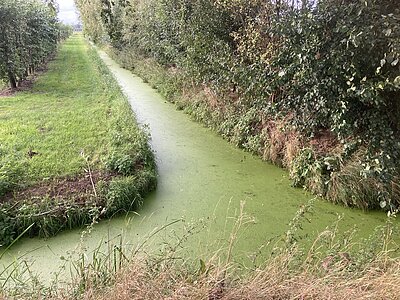
Urgent appeal to the European Commission, Council and Parliament for an immediate redirection of the EU Common Agricultural Policy (CAP)
In order to protect drinking water resources and thus drinking water quality and public health, the IAWR – in alliance with the drinking water supply associations in the basins of the rivers Meuse and Scheldt representing a total population of 81 million people - has sent an urgent appeal to the participants of the ongoing trilogue negotiations of the CAP. The appeal has been sent to all the 27 ministers for agriculture in the EU and the decision-makers in the European Parliament. On view of the European Commission, the appeal was addressed to the Commissioner for Agriculture and in copy to the Vice-President responsible for the European Green Deal, the Commissioner for Health and Food Safety and the Commissioner for Environment, and furthermore was also forwarded to the President of the European Commission. Covering over 50% of the Rhine basin area, Germany has a prominent position in the Rhine basin, therefore the appeal was also sent to the respective positions in the German federal government.
The appeal explains that an immediate redirection of the CAP is imperative in order to secure clean drinking water. In addition, the appeal highlights the indispensability of the European Green Deal.
June 2020
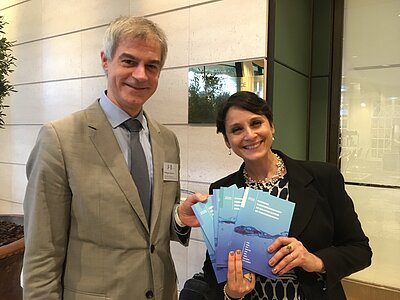
ERM Coalition presents European River Memorandum (ERM) 2020 to Veronica Manfredi, Director for Quality of Life in European Commission
The ERM Coalition is formed by Associations of Drinking Water Suppliers in the major European river basins. Today, the Coalition presented the European River Memorandum (ERM) 2020 to Ms Veronica Manfredi, Director for Quality of Life in the European Commission, and her team in DG Environment. Ms Manfredi is also, on behalf of the EU, President of the International Commission for the Protection of the Rhine for the period 2020-2022.
The ERM Coalition partners pointed out the need for legislative changes and that precautionary protection of drinking water resources is indispensable if the EU wants to have a sustainable drinking water supply in the future. Therefore, effective, concrete, comprehensive legislation is required now - as a top priority. As a response, Director Manfredi presented a number of upcoming legislative acts designed to address the complex issue of water protection and expressed unanimous support as the issues of the ERM Coalition highly match the holistic approach of the European Green Deal, a top political priority of the European Union.
The European River Memorandum had already been handed over to Ms Veronica Manfredi in advance at the Rhine Ministerial Conference in Amsterdam on 13 February 2020. On 22 March 2020, World Water Day 2020, it had officially been released.
March 2020
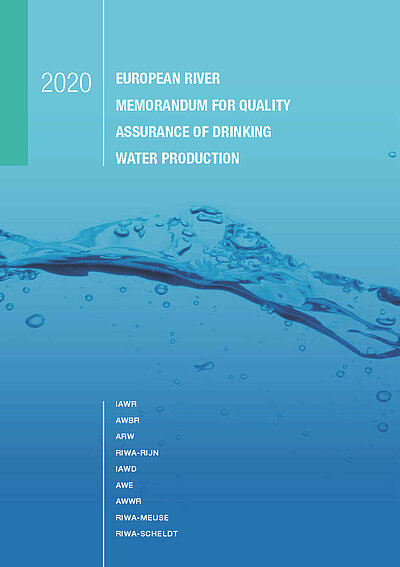
European River Memorandum adopted on World Water Day
The ERM coalition has adopted the European River Memorandum 2020 (ERM). The ERM Coalition comprises the associations of drinking water suppliers in the major European river basins of the Danube, Elbe, Meuse, Scheldt, Ruhr and Rhine, inhabited by 188 million depend on clean drinking water. In the memorandum, the suppliers set out target values for watercourses, which are indispensable as minimum quality standards for a sustainable drinking water supply.
 European River Memorandum for Quality Assurance of Drinking Water Produktion (1,9 MB)
European River Memorandum for Quality Assurance of Drinking Water Produktion (1,9 MB)
February 2020
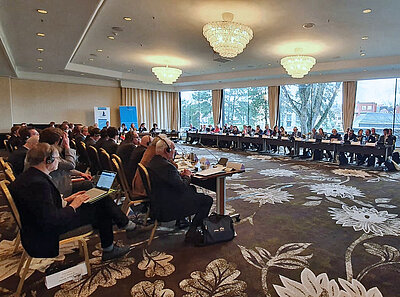
Historical Breakthrough
Rhine Ministerial Conference decides to effectively reduce Micropollutants from Households, Industry and Agriculture
Micropollutants from municipal wastewater (sewage treatment plants), industry and agriculture are to be effectively contained from now on. This was decided by the responsible ministers of the 8 Rhine riparian states as well as the EU Commissioner for the Environment at the 16th International Conference of Rhine Ministers after a long struggle in the run-up. The decision is a milestone in the process of reducing and preventing micropollutants, which was initiated in 2007 at the 14th Rhine Ministerial Conference in Bonn.
According to the new "Rhine 2040" programme, micropollutants are to be reduced by at least 30% overall by 2040. An evaluation system for the reduction is to be developed by 2021. Based on this evaluation system, after 6 years a review will take place and, if necessary, the reduction objective will be increased. The overall objective should continue to be drinking water from the simplest possible, natural treatment processes - instead of highly technical treatment in the waterworks.
The full IAWR press release includes further information.
The statement by IAWR President Prof. Dr. Matthias Maier at the ministerial conference on water quality/micropollutants on 13.2.2020 in Amsterdam sheds light on the background.
The ministerial communiqué and the programme Rhine 2040 is available on the ICPR website.
From the IAWR's point of view, concrete steps are now necessary and are summarised in the IAWR's 12-point Catalogue of Measures which can also be viewed.
February 2020
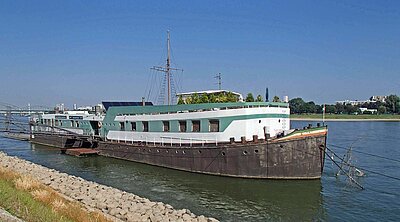
16. Conference of Rhine Ministers in Amsterdam
The 16th Conference of Rhine Ministers will take place in Amsterdam on 13. February 2020. It is a follow-up on the Basel Conference in 2013. The conference will be chaired by the Dutch Environment Minister, Van Nieuwenhuizen. The Environment Ministers of the eight Rhine riparian states and the European Union have been invited. The European Union took over the presidency of the ICPR at the beginning of the year with Director Veronica Manfredi from the Directorate-General for the Environment.
In addition to assessing the "Rhine 2020" programme, which is now coming to an end, issues of climate change (flood/low water), the Rhine as a habitat (fish passability) and water quality (micropollutants) are on the agenda. The new "Rhine 2040" programme will be adopted, in which the expectations and objectives of future activities to protect this water system for the next 20 years are formulated. The IAWR has already closely followed this process in the run-up to the Conference of Rhine Ministers. The IAWR will represent the interests of the drinking water suppliers, especially with regard to water quality and a reduction of micropollutants.
December 2019
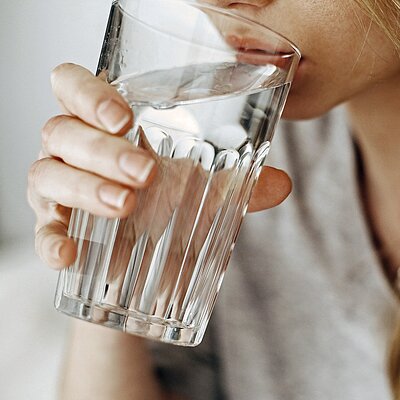
Press release of the Coalition of the European River Memorandum
European Coalition of Drinking Water Suppliers Demands Preservation of the Water Framework Directive and Intensification of Measures for Drinking Water Protection
The coalition calls for the unrestricted continuation of the European Water Framework Directive and for the criteria for the protection of drinking water resources to be specified.
The aim must be to maintain and strengthen precautionary water protection so that drinking water can continue to be provided using near-natural and sustainable treatment methods.
The coalition represents the needs for clean drinking water of 188 million inhabitants from 18 European countries living in the Rhine, Danube, Elbe, Meuse and Scheldt catchment areas.
October 2019
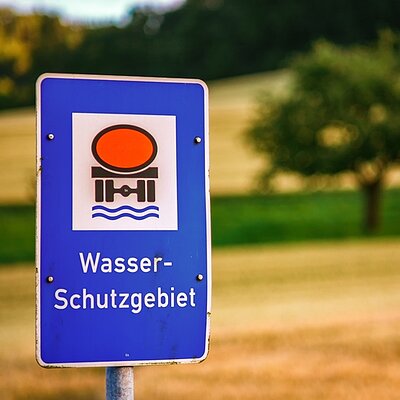
IAWR presents 12-point catalogue of measures for a future-proof drinking water supply
As climate change progresses, it becomes increasingly observable that it is accompanied by a water crisis. Therefore, the protection of the remaining water resources should be given top priority from now on, because only with clean drinking water there will be a basis of life for people, the economy and the environment in the future. The IAWR has identified interdepartmental measures with which the protection of our central basis of life can succeed if the current challenge is understood without delay as a feasible opportunity.
 Required measures for a future-proof drinking water supply (596,8 KB)
Required measures for a future-proof drinking water supply (596,8 KB)
August 2013
ICPR Finalist for the 2013 InternationalRiverFoundation European Riverprize
The International Commission for the Protection of the Rhine is one of four finalists for the 2013 IRF European Riverprize. The European Riverprize is awarded for the first time this year, while Riverprize International and the Australian Riverprize belong to the most prestigious environmental awards worldwide.
The nomination of the ICPR rewards and acknowledges it’s excellent, visionary and sustainable work in the Rhine river basin and it’s catchment area on an international level.
Dr. Peter Stoks, Managing Director of RIWA and longstanding Competence within the IAWR is one of the referees for the ICPR. He commends the ICPR’s outstanding work and the good cooperation with the IAWR in his referee letter.
The IAWR wishes all the best for the concern of this award and we congratulate to the nomination!
=> IRF European Riverprize
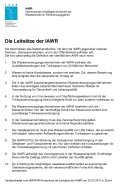
Guiding principles of the IAWR
The Public Relations Committee of the IAWR has developed ten standpoints regarding the identity of the IAWR and its public image. The standpoints have now been adopted by the IAWR Executive Board as guiding principles. They also form the basis for the public activities of the IAWR’s three member associations, AWBR, ARW and RIWA, in the entire Rhine basin area.
The highest priority for the associations of waterworks along the Rhine is to ensure that the quality of untreated water allows drinking water to be provided using only natural treatment processes. Other high priorities are the sustainable protection of water bodies and the precautionary and “polluter pays” principles.
